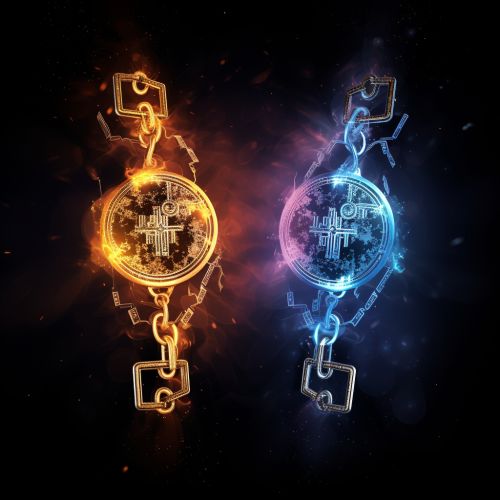Quantum Computing and Cryptography
Introduction
Quantum computing is a field of study that focuses on the development and application of quantum-based computers. These computers utilize the principles of quantum mechanics to perform computations. Quantum cryptography, on the other hand, is a technique that uses quantum mechanics to secure communication and protect information from third parties. The intersection of these two fields has significant implications for the future of information security, particularly in the realm of cryptography.


Quantum Computing
Basics of Quantum Computing
Quantum computing is based on the principles of quantum mechanics, the theory that describes the smallest particles in the universe. Unlike classical computers, which use bits as their smallest unit of information, quantum computers use quantum bits, or qubits. Qubits can exist in multiple states at once, a property known as superposition. This allows quantum computers to process a vast number of possibilities simultaneously.
Quantum Superposition
Quantum superposition is a fundamental principle of quantum mechanics. It refers to the quantum phenomenon where a quantum system can exist in multiple states simultaneously. In the context of quantum computing, a qubit in a superposition state can be both 0 and 1 at the same time. This is in contrast to classical bits, which can only be either 0 or 1. The ability of qubits to exist in multiple states allows quantum computers to perform complex calculations at a much faster rate than classical computers.


Quantum Entanglement
Another key principle of quantum mechanics utilized in quantum computing is quantum entanglement. This is a phenomenon where two or more particles become interconnected and the state of one particle is directly related to the state of the other, no matter the distance between them. This property is used in quantum computing to link qubits in a way that the state of one qubit can depend on the state of another. This interconnectedness, or entanglement, allows for faster and more complex computations.
Quantum Cryptography
Quantum cryptography is a method of securing communication by applying the principles of quantum mechanics. It is primarily used to secure the transmission of information between two parties.
Quantum Key Distribution
The most well-known application of quantum cryptography is Quantum Key Distribution (QKD). QKD uses quantum mechanics to ensure the secure exchange of cryptographic keys. If a third party attempts to intercept the key during transmission, the quantum state of the system will change, alerting the communicating parties to the presence of an eavesdropper.


Post-Quantum Cryptography
With the advent of quantum computing, traditional cryptographic systems are at risk. Quantum computers can potentially break these systems, rendering them insecure. This has led to the development of post-quantum cryptography, which aims to develop cryptographic systems that can withstand attacks from quantum computers.
Impact of Quantum Computing on Cryptography
Quantum computing has a significant impact on cryptography. On one hand, it poses a threat to existing cryptographic systems. On the other hand, it provides new ways to secure communication.
Threat to Existing Cryptographic Systems
Quantum computers have the potential to break many of the cryptographic systems currently in use. For example, RSA and ECC, two widely used cryptographic systems, rely on the difficulty of factoring large numbers and solving the discrete logarithm problem, respectively. However, with Shor's algorithm, a quantum computer could solve these problems efficiently, breaking the security of these systems.


Quantum-Safe Cryptography
In response to the threat posed by quantum computing, researchers are developing new cryptographic systems that can resist quantum attacks. These quantum-safe or post-quantum cryptographic systems do not rely on the hardness of factoring or the discrete logarithm problem. Instead, they are based on mathematical problems that are believed to be resistant to quantum attacks.
Conclusion
Quantum computing and cryptography are two intertwined fields that have significant implications for the future of information security. While quantum computing poses a threat to existing cryptographic systems, it also provides new ways to secure communication. The development of quantum-safe cryptographic systems is an active area of research, and the advent of quantum computers could revolutionize the field of cryptography.
